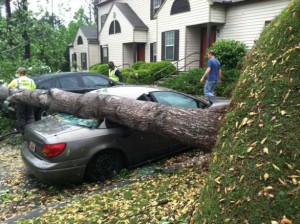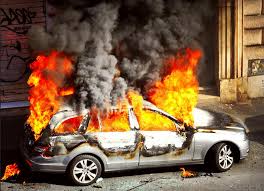 One of the hardest parts about buying car insurance is understanding what all of the different types of coverage mean. There are three basic types of car insurance coverage: liability, collision and comprehensive. This article takes a closer look at comprehensive car insurance coverage to explain how it can help protect your vehicle.
One of the hardest parts about buying car insurance is understanding what all of the different types of coverage mean. There are three basic types of car insurance coverage: liability, collision and comprehensive. This article takes a closer look at comprehensive car insurance coverage to explain how it can help protect your vehicle.
As you might guess from its name, comprehensive insurance provides extensive coverage for your vehicle against a wide range of damage or threats that are not related to car accidents. This includes damage incurred as a result of falling tree branches, vandalism, fire or even acts of nature such as rock slides or severe weather events.
Comprehensive coverage also provides protection against theft. Without this type of coverage, if your vehicle is stolen you may not be able to recover any money from your insurance company to replace it. Because of this, if you live in an area where car theft is common, it is probably worth adding comprehensive coverage to your insurance plan.
Typically the only type of damage that isn’t covered by comprehensive insurance is damage that is incurred as the result of a collision. This type of damage is either covered by the other driver’s liability insurance (if they were at fault) or by your own collision insurance (if you were at fault).
 Ideally, to provide the most possible protection for your vehicle, you should carry a combination of liability insurance, collision insurance and comprehensive insurance. Liability insurance covers any damage to another person, vehicle or property as a result of an accident where you were at fault, collision covers any damage to your vehicle for accidents that you caused, and comprehensive covers any non-accident related damages or theft. As you can see, a combination of all three types of insurance will give you the most well-rounded coverage available.
Ideally, to provide the most possible protection for your vehicle, you should carry a combination of liability insurance, collision insurance and comprehensive insurance. Liability insurance covers any damage to another person, vehicle or property as a result of an accident where you were at fault, collision covers any damage to your vehicle for accidents that you caused, and comprehensive covers any non-accident related damages or theft. As you can see, a combination of all three types of insurance will give you the most well-rounded coverage available.
The only time you might want to skip paying extra for comprehensive car insurance coverage is if you have an older vehicle with a low value. In some cases you might wind up paying more for insurance over the course of a year than your car is actually worth. If that sounds like the situation you are in, you would probably be better off putting the money you would have spend on extra insurance into savings to cover any repairs or to replace your vehicle if it is damaged or if it is stolen.
Understanding Full Coverage Car Insurance
What Is Comprehensive Car Insurance Coverage?
